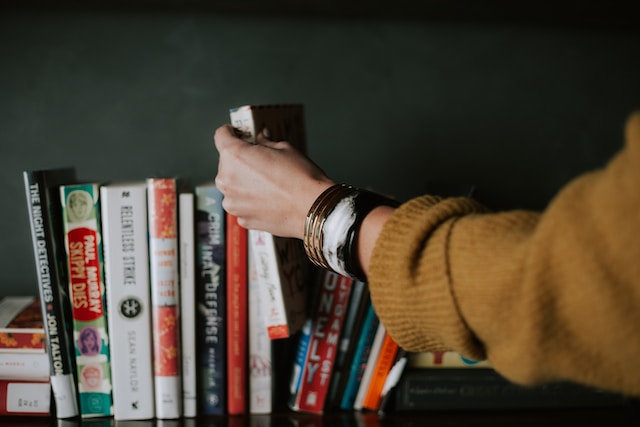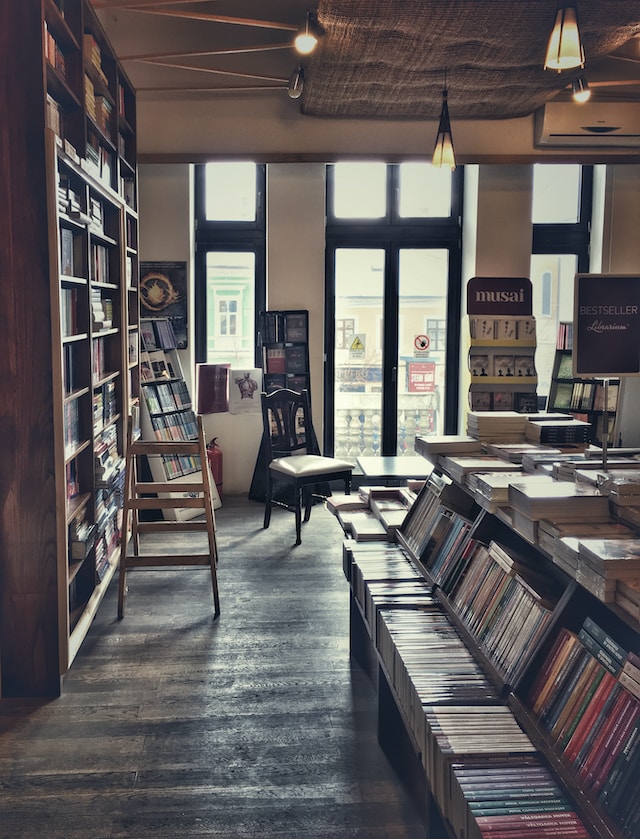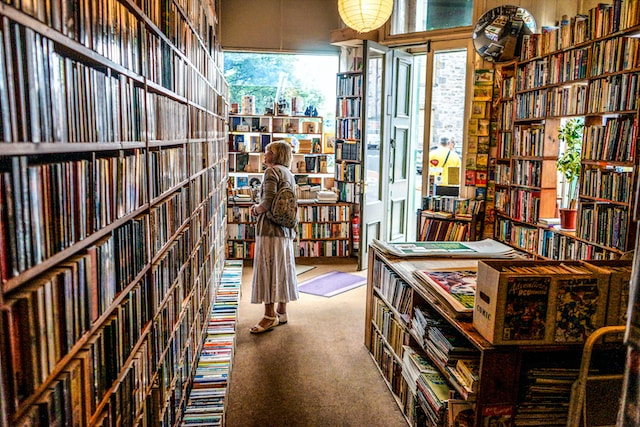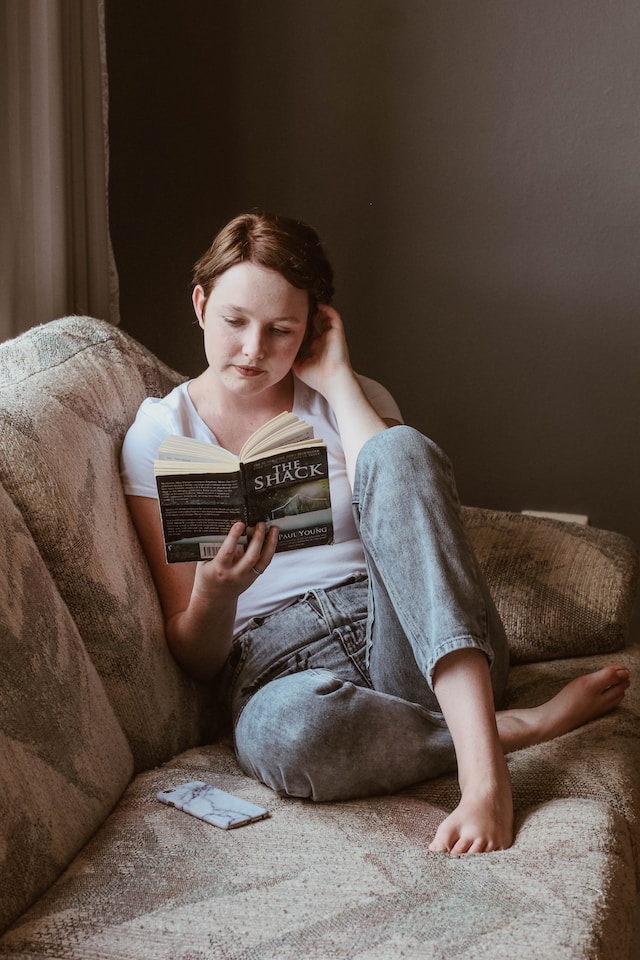
Welcome to our curated collection of authors you should read. Within these pages, you will discover an array of literary giants whose works have enthralled and captivated readers for generations. These authors, with their distinct styles and unforgettable narratives, have shaped the literary landscape and left an indelible mark on the hearts and minds of readers worldwide.
Whether you are a devoted bibliophile or someone looking to expand their literary horizons, this compilation of authors is designed to inspire and provoke thought. From the timeless classics to contemporary voices pushing the boundaries of storytelling, these writers have crafted masterpieces that will transport you to different worlds, evoke powerful emotions, and challenge your perspectives.
Each author selected for this collection has been chosen not only for their literary prowess but also for their ability to explore the complexities of the human condition. Through their words, they delve into themes of love, loss, identity, and the pursuit of truth, inviting readers to contemplate life’s profound questions.
So, whether you are seeking a captivating love story, a thought-provoking exploration of social issues, or a mind-bending journey through fantastical realms, immerse yourself in the pages that follow. Discover the magic that lies within these authors’ words and let them guide you on a literary adventure that will deepen your love for reading and ignite your passion for storytelling.
Importance of Reading as a Writer
As an aspiring writer, it is crucial to recognize the immense value of reading in honing your craft. Akin to an artist studying the great works of the masters, reading allows you to immerse yourself in the brilliance of other authors’ storytelling, style, and technique. In this section, we will explore the significance of reading in shaping your writing skills and cultivating your own unique literary voice.
Expand Your Vocabulary and Language Skills
One of the first benefits of reading is the expansion of your vocabulary and language skills. By exposing yourself to a wide range of books and authors, you encounter new words, phrases, and sentence structures that help enrich your own writing. As you witness how expert writers employ language to evoke emotions and paint vivid imagery, you learn to wield words with precision and creativity.

Enhance Your Imagination and Creativity
Reading, particularly fiction, unleashes the power of imagination within you. By immersing yourself in different narratives, settings, and characters, you cultivate your ability to create intricate storylines, develop compelling characters, and build immersive worlds. As you explore the imaginative realms crafted by other writers, you become inspired to develop your unique storytelling prowess.
Learn from Successful Writers
Every writer can benefit from analyzing the works of successful authors. Through reading, you can delve deep into the minds of master storytellers, dissect their narrative techniques, explore their character development, and analyze their unique writing styles. By studying their successes, you gain insights into the craft of writing, allowing you to apply the lessons learned to your own work.
Expand Your Literary Horizons
Reading exposes you to diverse genres, perspectives, and writing styles, broadening your literary horizons. By venturing beyond your comfort zone and exploring various genres, you develop a deeper appreciation for the vast tapestry of storytelling. The more you expose yourself to different writing styles and genres, the more you can incorporate elements from each into your own writing, creating a unique fusion that resonates with readers.
Discover and Refine Your Writing Voice
Reading helps you find your own writing voice. As you expose yourself to various authors, you develop an instinct for what resonates with you on a profound level. Whether it’s the lyrical prose of Virginia Woolf or the raw emotions of Sylvia Plath, you can identify the elements that speak to your soul and incorporate them into your own writing. As you read widely, you refine your voice, offering a distinct perspective that sets you apart from other writers.
Factors to Consider When Choosing Author Recommendations
With a multitude of authors and books to choose from, selecting the right author recommendations for yourself or others can be a daunting task. However, by considering certain factors, you can enhance the reading experience and tailor it to individual preferences. Here are some important factors to keep in mind:
Personal Interests: The first and foremost factor to consider when choosing author recommendations is personal interests. Think about the genres and themes that you or the intended recipient enjoy exploring. Whether it’s historical fiction, science fiction, mystery, or poetry, selecting authors who align with these interests will undoubtedly create a more fulfilling reading experience.
Writing Style: Each author has a unique writing style, which often contributes to the overall enjoyment or engagement with their works. Some writers may have a more descriptive or lyrical prose, while others may be known for their concise and impactful language. Consider the preferred writing style and select authors who excel in it to ensure a seamless connection with the reader.
Accessibility: Accessibility is an important factor to contemplate when recommending authors, especially for those who are new to reading or have specific accessibility requirements. Some authors may have more straightforward and accessible writing styles, making their works easier to comprehend and engage with. This factor is particularly important for younger readers or individuals with reading difficulties.
Cultural and Social Relevance: In our diverse world, it is important to explore authors from various cultural and social backgrounds. By recommending authors who represent different identities and perspectives, we can broaden our understanding of different cultures and promote inclusivity. Consider authors who have contributed significantly to global literature and whose works reflect a diverse range of experiences.

Reader Reviews and Recommendations: It can be helpful to seek out reader reviews and recommendations when selecting authors to explore. These reviews can offer valuable insights into the themes, writing styles, and overall quality of an author’s works. Online book communities and literary circles are great resources for finding honest and diverse opinions that can inform your decision-making process.
Top Author Recommendations
Jane Austen
If you haven’t read Austen’s novels, you’re missing out on some of the wittiest, most charming writing in the English language. Start with “Pride and Prejudice” and be swept away by the romantic drama of Elizabeth Bennet and Mr. Darcy.
F. Scott Fitzgerald
Fitzgerald captured the spirit of the Jazz Age in his novels, particularly “The Great Gatsby.” His prose is lush, decadent, and heartbreaking, and his stories are a snapshot of an era that still fascinates and captivates us today.
Toni Morrison
Morrison was a master storyteller, and her novels are powerful examinations of race, identity, and the human experience. Start with “Beloved,” a haunting and unforgettable novel about the legacy of slavery.
Ernest Hemingway
Hemingway’s lean, spare style of writing changed the face of American literature. His novels and short stories are timeless and deeply felt, and no one can forget the tragic beauty of “The Old Man and the Sea.”
Sylvia Plath

Plath’s poetry is raw, emotional, and deeply personal. Her letters and journals offer insight into her troubled life, but it is her haunting, lyrical poetry that has made her a revered figure in American literature.
Gabriel Garcia Marquez
Marquez’s magical realism transports readers to worlds that are both familiar and fantastical. His masterpiece, “One Hundred Years of Solitude,” is a sweeping family saga that is both epic and intimate.
Virginia Woolf
Woolf was a pioneer of modernist literature, and her novels and essays are a masterclass in the art of writing. Her stream-of-consciousness style and exploration of feminist themes make her a true iconoclast.
J.R.R. Tolkien
Tolkien’s works, particularly “The Lord of the Rings” series, have shaped the fantasy genre and captured the imaginations of millions. His intricate world-building, robust characters, and epic battles between good and evil make his books a must-read for any fan of fantasy literature.
Harper Lee

Lee’s iconic novel, “To Kill a Mockingbird,” tackles themes of racism, justice, and the loss of innocence. Her honest portrayal of small-town life in the deep south resonates with readers and continues to spark important conversations about social issues.
Leo Tolstoy
Tolstoy’s epic novels, such as “War and Peace” and “Anna Karenina,” are considered masterpieces of Russian literature. His exploration of love, fate, and the human condition in the midst of war and societal upheaval make his works timeless and thought-provoking.
Maya Angelou
Angelou’s autobiographical works, including “I Know Why the Caged Bird Sings,” are powerful and inspiring. Her ability to capture the complexities of race, gender, and identity through her poignant storytelling and lyrical prose make her a literary icon.
George Orwell
Orwell’s dystopian novel, “1984,” remains relevant today with its portrayal of a totalitarian society and the manipulation of truth. His sharp commentary on politics, language, and power continues to resonate with readers and serves as a cautionary tale for the dangers of government control.
Gabriel Garcia Marquez
Marquez’s “Love in the Time of Cholera” and “One Hundred Years of Solitude” are works of magical realism that transport readers to lush, enchanting worlds. His lyrical prose and exploration of love, time, and memory make his books unforgettable.
Virginia Woolf
Woolf’s introspective and pioneering novels, such as “Mrs. Dalloway” and “To the Lighthouse,” delve deep into the inner lives of her characters and challenge traditional narrative structures. Her lyrical stream-of-consciousness writing style and exploration of feminist themes make her a literary trailblazer.
Edgar Allan Poe
Poe’s dark and macabre tales, such as “The Tell-Tale Heart” and “The Fall of the House of Usher,” have had a profound influence on the horror genre. His masterful use of atmosphere, suspense, and psychological tension make his stories gripping and unforgettable.
Zadie Smith
Smith’s novels, including “White Teeth” and “On Beauty,” tackle themes of race, identity, and multiculturalism. Her witty, perceptive writing style and complex characterizations make her a refreshing voice in contemporary literature.
Kurt Vonnegut
Vonnegut’s satirical and thought-provoking novels, such as “Slaughterhouse-Five” and “Cat’s Cradle,” blend science fiction, dark humor, and social commentary. His unique brand of storytelling challenges societal norms and explores the absurdity of human existence.

Isabel Allende
Allende’s novels, such as “The House of the Spirits” and “Eva Luna,” blend magical realism with historical fiction, creating rich, vibrant narratives that explore themes of love, family, and political turmoil. Her captivating storytelling and strong female characters have made her a beloved author worldwide.
Salman Rushdie
Rushdie’s novels, including “Midnight’s Children” and “The Satanic Verses,” blend history, myth, and magical realism to create complex and dazzling narratives. His exploration of cultural identity, religion, and postcolonialism has solidified him as a literary giant.
Chimamanda Ngozi Adichie
Adichie’s novels, such as “Half of a Yellow Sun” and “Americanah,” tackle themes of race, gender, and identity with honesty and wit. Her powerful storytelling and compelling characters make her a leading voice in contemporary literature.
These authors represent a mere fraction of the vast literary world, but their works have left an undeniable impact on readers across generations. Whether you’re drawn to the classics or hungry for new voices pushing the boundaries of storytelling, exploring the works of these authors will ignite your imagination, challenge your perspectives, and remind you of the power of literature to connect us all. So, dive into their pages, and let the magic of their words transport you to new and extraordinary worlds.
In the journey towards becoming a skilled writer, the significance of reading cannot be overstated. By immersing yourself in the works of great authors, you refine your writing style, expand your imagination, and cultivate your unique voice. Remember, all great writers were once avid readers, and by embracing the wealth of literature available, you open yourself to countless opportunities for growth and inspiration. So, let the books be your mentors, and may they guide you towards penning your own masterpiece.